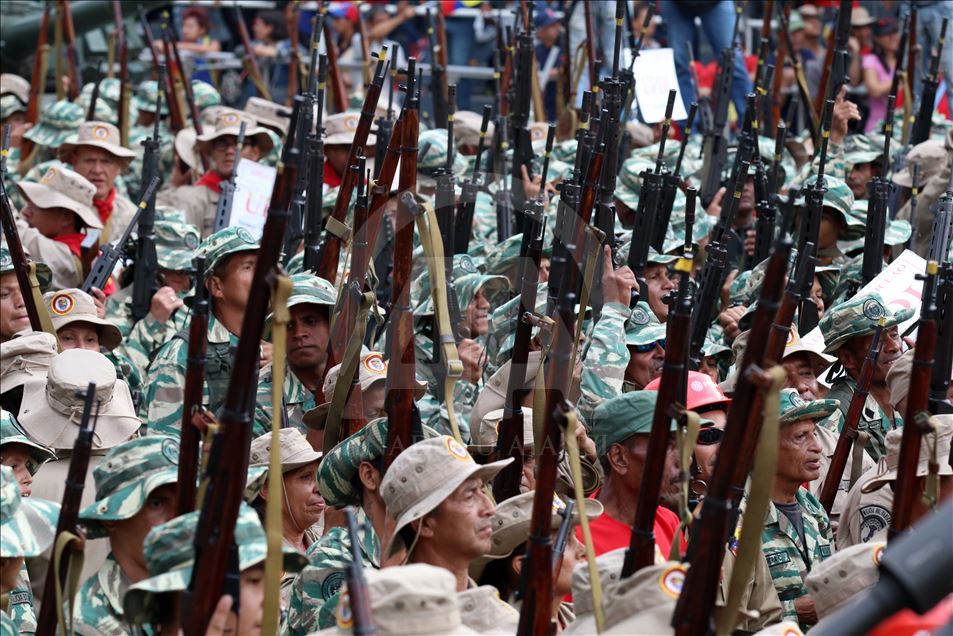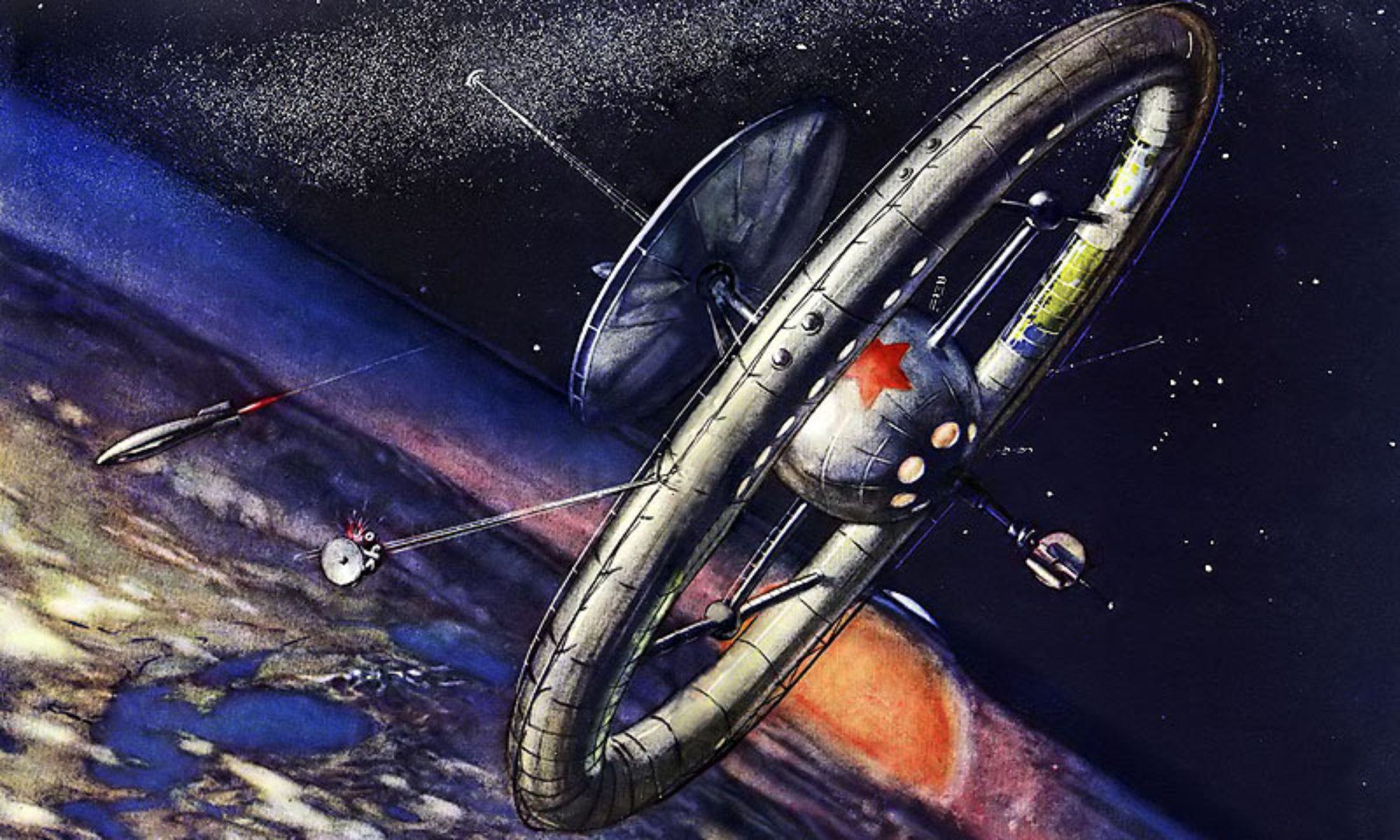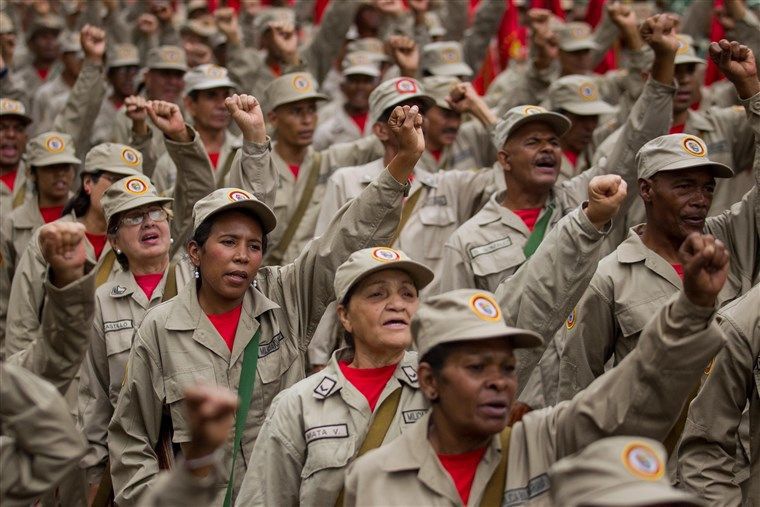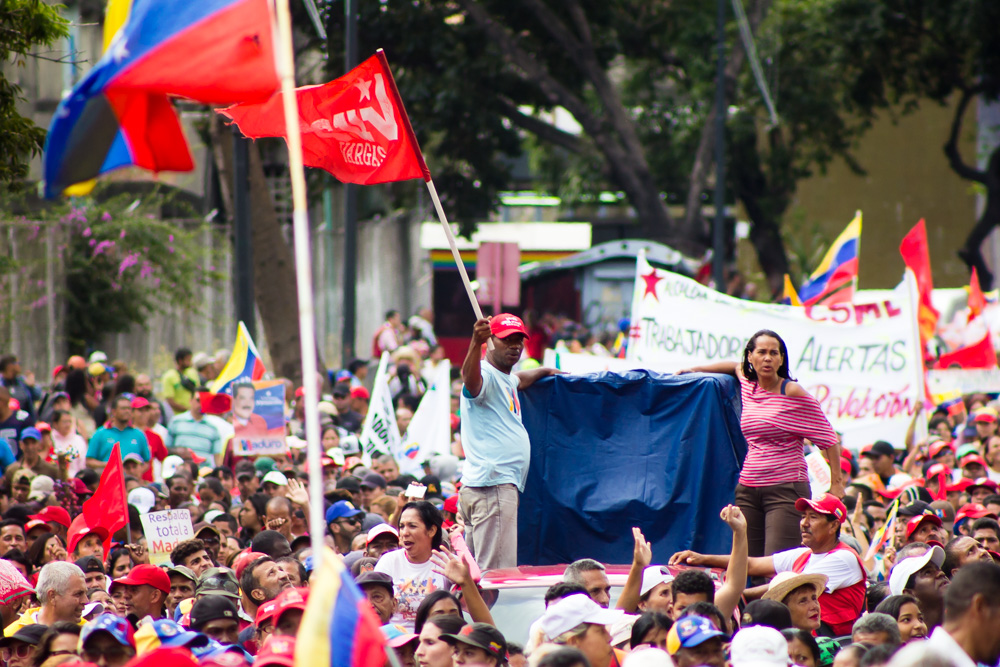Translation by Rudy Flores and Debs Bruno of a document from the Venezuelan Left on the question of the Communal State and Military organization.

In general, the term “Military” is understood as everything that is related to the business of war. Consequently, Military is the qualifier that is coined for organizations, institutions, thoughts, theories, practices, customs, resources, equipment, goods, in short, everything that is related to the issue of war: the use of force or armed violence so that the opponent, adversary or enemy ends up behaving a certain way. Hence, the classic division between the Military and the Civil. In this order of ideas, the “Civil” is what initially is not Military. It is stated that initially, taking into account that the delimitation or border between the Military and the Civil is less and less precise or evident. For example, a car or vehicle conceived and built for civil use, whatever it’s brand or manufacturing origin, can perfectly adapt and be used consequently to execute a war action. Indeed, by providing it with an explosive charge and activating it by the means of a suitable device, it is possible to generate results similar to those produced by a military bomb dropped by a military aircraft. In this sense, the difference between the VBIED (civil) and the bomb dropped by the aircraft (military), lies in the fact that one vehicle moves on the ground and the other in the air.
In this sense, what is relevant is not the fact that goods or resources conceived and produced for Civil use, that is, for purposes other than war, are increasingly used in military or armed controversies. Such a situation has always been present in the development of human history. What is relevant and essentially decisive is that with the consolidation of the State as a tool of domination of a social class over the remaining classes that structure a given society, the “Military” ended up being relatively monopolized by it and, more concisely, by the class, group, elite or clique that governs it, since, in short, the military force organized as a constituent component of the State ends up acquiring the character of the State itself. In such a context, it becomes the main instrument of ensuring its domination as a social class over the rest of society.
In fact, all Monarchs claimed for themselves the capacity to have a PERMANENT ARMY and, subsequently, to designate their high commands, at the same time that they reserved for themselves the position of COMMANDER IN CHIEF. The Anti-absolutist or Anti-monarchist Social Movements inspired fundamentally by Liberal ideology fought for the suppression or delimitation of these monarchical prerogatives. With the triumph of Liberalism, therefore with the establishment of the STATE OF LAW as the universal model of the bourgeoisie for the political organization of the nation-society, the criterion of the necessity of the PERMANENT ARMY was consolidated in order to attend to all matters of the security and defense of the nation. In such a context, the PRINCIPLE OF CIVIL SUPREMACY was established, that is, that the planning, organization, financing and conducting of the Military resided in the sphere of the Civil.
Consequently, the bourgeoisie that managed to become hegemonic in their respective societies and subjected the military institutions to the aforementioned PRINCIPLE OF CIVIL SUPREMACY. Obviously this is only the case in the theoretical-normative plane, since in material reality such military bodies or apparatuses do not cease in their claim to enjoy absolute autonomy in all that is inherent to the security and defence of the nation, with the particularity that the limits of security and defence have also become diffuse and increasingly blurred.
In the singular case of Venezuela, it is not an exaggeration to affirm that the State military organization has managed to place itself in a position of notorious and indisputable supremacy in relation to the rest of the public and private institutions that currently exist in society. In this sense, the high commanders of the Bolivarian National Armed Force, as an armed body which is constitutionally responsible for guaranteeing the security and defense of the nation, product of the protagonism and supremacy that it has acquired at the expense of all the State civil institutions and, essentially, of the dismantling and deactivation of the Revolutionary Popular Movement, have practically managed to monopolize or hegemonize all the instances and organisms that make up the Venezuelan State and, subsequently, the activities that these carry out within the framework of the fulfillment of their ends.
For illustration purposes only, it is worth mentioning that today, under the direct or covert control of the high military hierarchy, are almost all activities related to the importation of food, medicines, domestic appliances, medical equipment, spare parts, and auto parts, liquors, etc.; the purchase and sale of fuel; The purchase and sale of material for the construction and manufacturing of housing; the presidencies of almost all public enterprises; almost all the directorates or management of administration and finance of public powers, ministries, public enterprises, governorates, mayors’ offices, etc.; the majority of private companies that have contracts with the State; the exploitation and commercialization of mining resources; in summary, the Venezuelan State and hence, the Venezuelan society are under the management of the high military command. This does not mean that it is the only group that benefits from government management as a whole, since bankers, importing bourgeoisie, insurance and securities brokers, owners of transnational companies, currency exchange offices, owners of television and radio plants, oil and other fuel trading companies, the high bureaucratic hierarchy of the State, etc., also enjoy full hands on the secret and stateless businesses that are carried out to the detriment of the assets of all the Venezuelan people.
Thus, the first lesson to be drawn from the constant conflict between the Military and the Civil throughout the history of humanity and, logically, the singularities that this struggle presents in our historical development as a society, is to understand that it is not enough for the Constitution and other laws of the Republic to establish legal norms that prohibit or limit the military institution as a whole. The dynamics that it unleashes in its daily work, as well as the logic that ultimately guides its development make such prohibitions or limits inefficient or ineffective, in short, that such normative devices end up being discursive proclamations that have no impact on reality, that is to say, that they end up being dead letters.
The center of the question is in what has been insisted in this series of articles related to the Communal State, that is to say, with the historical challenge that implies the design, construction and activation of a set of mechanisms or physical means that in the concrete historical reality prevent the high command of the PERMANENT AND PROFESSIONAL ARMY from becoming a group or factor that hegemonizes all the institutionality of the State and the life of society, which evidently requires questioning and overcoming the traditional and generally accepted Military approach of Liberal-bourgeois root, whose reasonings prevail even in organizations that proclaim themselves revolutionary and Marxist. In such a perspective, it is vital for the historical future of the Homeland to undertake a broad, energetic and intense process of Popular Education inspired by the most advanced currents of revolutionary thought on the question of the security and defense of the People, without this leading to the denial of the Nation, but as an obligatory distinction within the framework of the class struggle and with a view to the construction of the Communal State.
Thus, what is demanded by the reality that Venezuela is going through, which, logically, is not limited to guaranteeing the continuity of the management of the current governing elite, but obliges us to tackle everything that is necessary in order to build a worthy, decent, safe, productive, prosperous, independent, sovereign homeland, in short, a happy homeland, in other words, a Socialist Homeland, proposes to transcend the individual questioning of this or that high military official by virtue of his authoritarian, corrupt or treasonous practices to give way to a true BATTLE OF IDEAS around the Liberal-bourgeois ideology that sustains and orients the raison d’être and behavior of the military institution as a whole.
In this context, and having as a guiding objective the question of the construction of the Communal State, it is necessary to rethink what concerns the monopolization by the Permanent and Professional Army of everything that implies the security and defense of the people-society and, naturally, everything that this implies, that is to say, economy, politics, culture, etc. In other words, the security and defense of what Venezuela means concerns all Venezuelans, given that its future as a concrete historical reality will depend on the quality of the future that each and every one of the members of the people-society will have to face, therefore, the first point to be elucidated on the occasion of the construction of the Communal State is whether the exclusivity of the handling of the security and defense issue is preserved in the hands of the military institution or, on the contrary, it advances according to the conception of the PEOPLE IN ARMS, that is, of the autonomous preparation and organization for war of the oppressed and exploited classes and social sectors that are part of the Venezuelan nation-society, logically taking into account the ways in which this has been developed at the same time.
The simple fact is that until now there is no other way to repel armed aggression other than through the use of armed force. Vindicating the institution of the PEOPLE IN ARMS does not mean being militaristic and even categorically denies the need for the existence of a permanent and professional military corps, since what is discussed is not the professionalization and permanence of the corps as such, but in reality, assumes the monopoly of the direction of all matters related to the war, beyond what is established by the institutional legal order of the State.
It is reiterated that this is an essential and decisive aspect, especially if one considers the distinctive features of our historical process as a Republic, in which the following stand out, among others: The civil mandates in our republican history have been an exception, or in opposite sense, the military mandates have been the constant in our republican history. Military caudillismo has been the main factor in the conduction of the processes of struggle that have developed in it; the conformation of the Permanent and Professional Army goes back to the beginnings of the XX century, the period in which the centralization of the State is concretized and its capitalist-bourgeois character begins to manifest itself.
On the other hand, it is necessary to keep in mind the characteristic features of the dominant mentality in the Venezuelan State military force, which obviously has repercussions on its collective behavior: metaphysical and esoteric vision of life; full ignorance of the materialist conception of history, therefore, denial of the class struggle and abstract vindication of the notion of Nation; deification of the figure of Bolivar and a valuation of the revolutionary struggle waged by the Venezuelan people as events executed by individually considered heroes; demerit and underestimation of the civil, therefore, authoritarianism and arrogance in the face of everything that is not military; corporate spirit, consequently, they constitute themselves as a group with their own interests that leads them to separate themselves from the mission that corresponds to them as a State institution; uncritical obedience to superior orders; Mechanical distrust of any reflection, proposal or initiative that does not come from their natural commanders; conservation of secrecy in the administration and use of resources; acriticity; omission of accountability; Dogmatic discipline, in short, the mentality that prevails as a whole is one that is functional to the domination exercised by hegemonic capitalist groups through the Liberal-Bourgeois State currently prevailing in Venezuela, hence the idea that vertebrates the majority of the Permanent and Professional Army membership is that to the extent that they obediently and efficiently serve the governing classes and groups, they achieve at the end of their military careers a golden retirement product of what they have been irregularly accumulating throughout that.
Anyone can think that this is not the moment to exteriorize these reflections since they can contribute to weaken or demoralize the revolutionary forces that inside and outside the military institution face with patriotic firmness the imperialist aggression of which Venezuela is the object. It is based on the opposite consideration, that is to say, that to the extent that Venezuelans consciously assume that the question of the security and defense of the country is not an exclusive affair of the military and, consequently, openly fight in order to correct all the deviations present in the PERMANENT MILITARY BODY, in that same measure progress will be made in the deepening and strengthening of all that supposes the security and defense of the homeland. In the same way, to the extent that progress is made towards a new military organization that breaks with the monopoly that the Permanent Army exercises over the issues inherent to security and defense, to the same extent progress is made in the construction of a new type of State which, in our case, is the Communal State.
In this order of ideas, it is determining to bear in mind that the construction of the Communal State does not take place in a vacuum, that is to say, on the margin or outside of what is happening at present in Venezuela, hence it is mandatory to start from the concrete reality in which one lives, in this sense, it is vital to bear in mind the distinctive features of our historical process and the characteristic features of the Venezuelan military mentality, since they constitute inputs for the process of formulating a revolutionary strategy based on the building of the Socialist Homeland, especially in the field of Popular Education and the theoretical foundations of the new institutional legal order of the Republic.
Likewise, the complex, dynamic and delicate situation that we are going through is part of the current national situation, because of the intensification of the imperial offensive led by the US government. Therefore, it is within the framework of this decisive reality in which the construction of the Communal State will be hastened, because, it is reiterated, materially it cannot be built in a vacuum. This is why the Revolutionary Popular Movement, and especially the Communal and Peasant Movement, which has raised and promotes the project of concretizing the organization of the Communal State as part of the solutions to the chaos in which Venezuela lives, has before it a set of tasks related to the preparation and development of the People’s War, in the perspective of confronting and annihilating all the bourgeois political-military organizations that, being at the service of imperialism, seek to take back the homeland to the colonial situation, ignoring the fact that sovereignty was conquered by the Venezuelan people on the battlefields with weapons in their hands, and with them, and with the same heroic attitude, will know how to defend it in order to guarantee its perpetuity.
In this sense, arming the revolutionary masses as part of the development of the People’s War in the face of imperialist aggression, and as a strategy of anti-capitalist struggle, implies anticipating the establishment of the institution of the PEOPLE IN ARMS, which in turn represents the prefiguration of one of the structuring elements of the Communal State. This is why it is said that burying the internal bourgeoisie at the same time as initiating the internationalization of the People’s War against capital, especially that embodied in Yankee imperialism, means advancing by leaps and bounds in the process of building the Communal State.
FROM THE VENEZUELAN MOUNTAINS AND FIELDS
PRODUCE FOOD, TECHNOLOGY AND DIGNITY
LET’S KEEP PUSHING THE SUN


